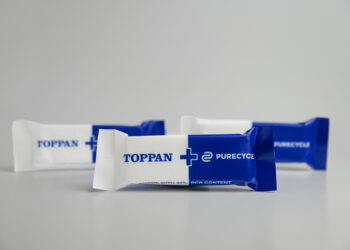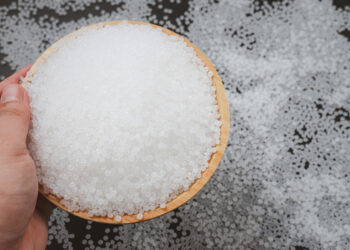North American beverage company Keurig Dr Pepper continues to work on increasing the recyclability of its K-Cup coffee pods and reducing the amount of plastic used, according to its 2023 Corporate Responsibility Report.
In 2023, the company reduced plastic in each pod by 18%, and removed PP discs in some pods, eliminating 14 million pounds of virgin plastic, the report noted.
The company has struggled to improve the pods’ recyclability over the years, switching from several layers of various polymers to PP in 2020.
In 2022, the company – then known as Keurig Green Mountain – settled a class-action suit for $10 million regarding coffee pod recyclability claims.
The settlement required that Keurig label, market, advertise or otherwise represent the cups as recyclable only while “clearly and prominently including a revised qualifying statement, ‘Check Locally – Not Recycled in Many Communities,'” in close proximity to any representation regarding recycling.
The same year, Canadian officials forced Keurig Canada to alter its recyclability claims and pay about $2.37 million U.S. in penalties.
In the 2023 report, Keurig Dr Pepper said post-consumer PP is widely accepted for recycling, citing The Recycling Partnership’s National Recycling Database.
“However, many communities do not yet accept certain polypropylene containers, including coffee pods, for recycling,” the company acknowledged in the 2023 report. “This is often due to outdated recycling infrastructure or lack of equipment that can effectively sort polypropylene plastic. We are working with individual communities and recyclers so more consumers can recycle their pods in local community recycling programs through investment, collaboration and advocacy.”
In addition, in the fall Keurig plans to begin testing K-Rounds, which contain no plastic or aluminum, but require users to purchase a new machine.
The company also noted that it has co-founded three organizations that enhance recycling infrastructure and educate consumers on proper recycling behaviors.
The organizations include The Recycling Partnership’s Polypropylene Recycling Coalition. Founded in 2020, the coalition aims to increase access to residential recycling for PP, ensure more facilities can sort the material, and support end markets with a steady supply of recycled PP for reuse in packaging.
About 60-65% of people in the U.S. have access to PP recycling, and only 30% of PP used in consumer products is recycled, according to the coalition website.





























